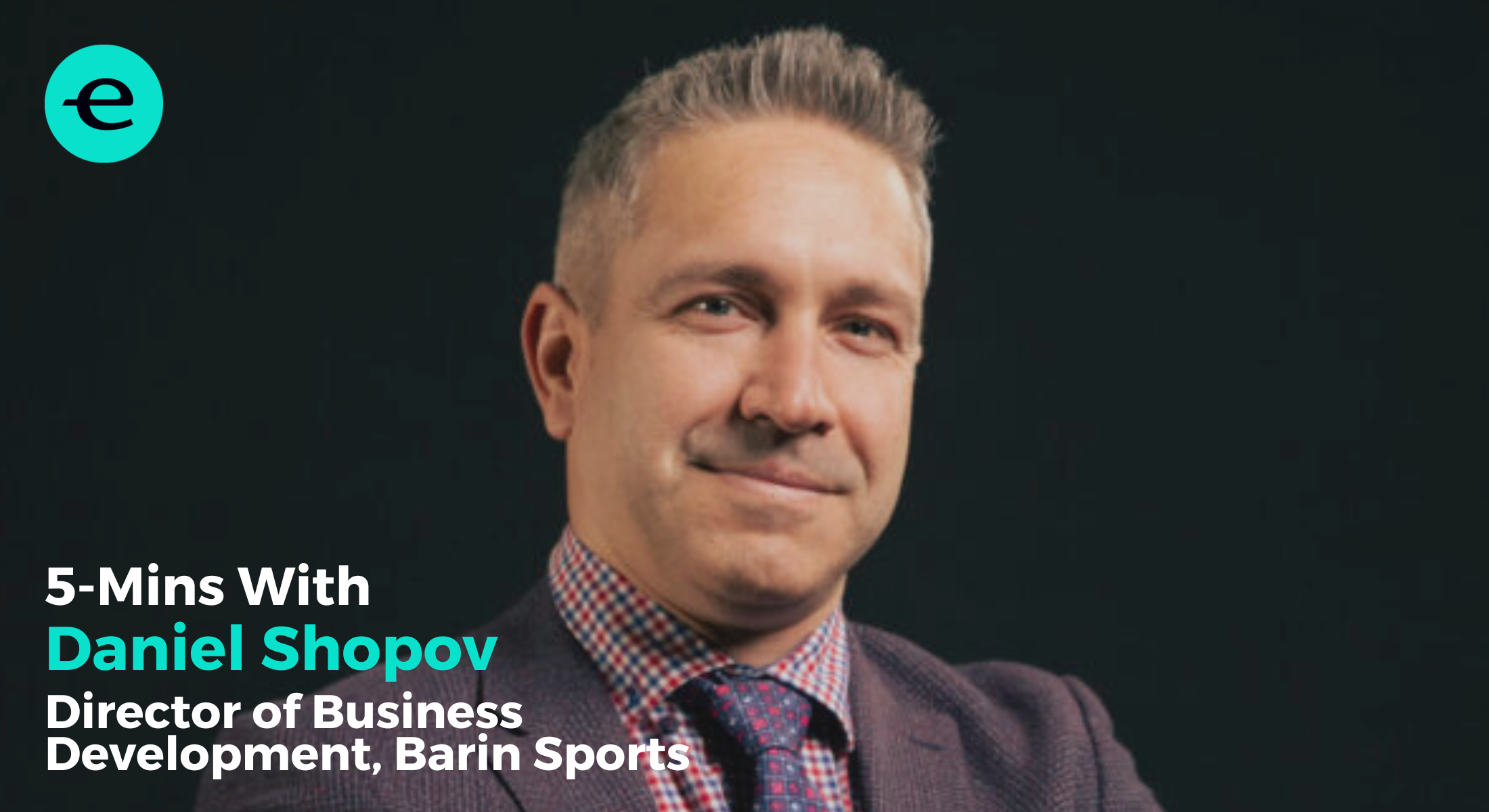5-Minutes With: Daniel Shopov

5-Minutes With is an interview series where business leaders from Endeavor Bulgaria’s network share their personal experiences, advice, and lessons learned.
Meet Daniel Shopov, a dynamic business leader at the intersection of sports and technology. As Director of Business Development at Barin Sports, he has played a pivotal role in scaling the company’s global footprint, securing investments, and driving innovation in sports tech. With a background spanning strategy, sales, and leadership roles at Avon and American University in Bulgaria, Daniel brings a wealth of expertise in business growth and transformation.
In this conversation, Daniel reflects on his entrepreneurial journey, the myths that hold founders back, and the importance of maintaining perspective—whether through golf, science fiction, or the occasional NBA game.
What is a surprising fact about Endeavor?
It is always great when the reality matches the hype. We first connected with Endeavor around their Dare2Scale program, which turned into a great success for us. It was a no brainer to continue in their Regional program. The community they have built is truly impressive and this has given us access to a whole host of opportunities with business partners, investors and mentors.
Entrepreneurship can be a rollercoaster—what’s your go-to method for staying grounded during tough times?
What’s one myth about entrepreneurship that needs to be debunked?
You are allowed to say “No” to an opportunity. We are constantly hustling for deals or investments or the next pivot. We get to meet with many extremely interesting people with wonderful, outrageous, fantastic ideas… and we want to do it all. I have to constantly remind myself what is my main goal and to weigh the long-term benefits vs the short-term gains. And there are only so many resources at your disposal – time, people, money. So, every now and again it is good to reject an option, to choose not to do something. The myth is that there is that one opportunity out there, which will make or break you. I’m much more of a believer in the process over jumping at every opportunity. It is a fine balance, requires judgement calls and wrong choices will be made. But if you have a good working process, the opportunities will come. Trust your instincts to determine, which is the right one for you.
What’s one book, podcast, or resource you’re currently reading or listening to that you’d recommend to others?
I listen a lot to the Ringer Podcast Network, which has a variety of podcasts on sports, movies, (pop) culture, business and politics. My favorite is the Bill Simmons Podcast. Recently, I started listening to the Acquired podcast as well, which a friend of mine recommended.
What’s one piece of advice you’d give to aspiring entrepreneurs?
Make sure you validate your product-market fit as thoroughly as your technology. One cannot go without the other. If you focus only on the business and the technological development lags, then you will make promises, which you won’t be able to fulfill. If you spend too much time making the product perfect, you may end up missing your window and the competition will catch up. Constantly check your own biases to make sure you’re not leaning one way or the other too much. And most definitely don’t try to do everything by yourself. Selecting the people you work with is often just as important as the idea itself.